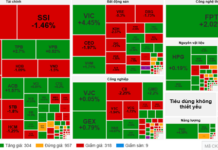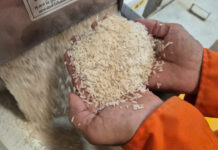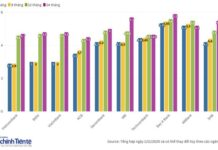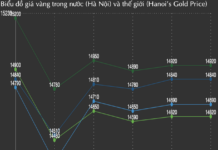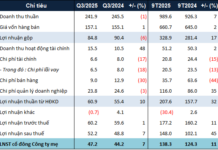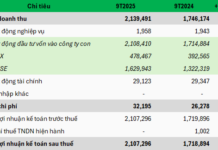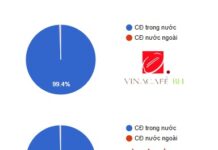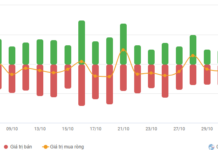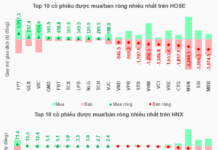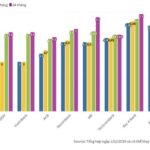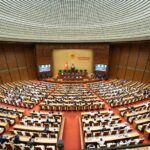On March 15th, the Vietnam Beer-Alcohol-Beverage Association (VBA) held a conference with its member companies. At the conference, businesses and economic experts discussed the difficulties, challenges, and business prospects of the industry in 2024.
REVENUE AND THE INDUSTRY’S OVERALL PROFIT DECREASED BY 15-20%
According to the VBA, the beverage industry contributes about 60 trillion VND to the budget each year, creating millions of direct and indirect jobs. The industry’s diverse and high-quality products meet the increasing domestic and export consumer demands. The industry also plays an important role in the supply chain, including commerce, transportation, restaurants, and promotes the development of tourism and services.
However, in recent years, the industry has faced many difficulties due to Covid-19, global conflicts, and the impact of Decree 100 on alcohol concentration penalties.
According to Mr. Lam Du An, Deputy General Director of Sabeco, the input costs and raw materials for the beer industry (such as hop prices, beer cans, bottle caps, auxiliary materials, transportation costs, etc.) are expected to continue to increase in 2024.
The VBA stated that the industry as a whole has been experiencing a significant decline in revenue and profit, which has also had an indirect impact on trade systems, restaurants, amusement parks, transportation, and supply chains, with a decrease of 15-20%, and in some cases, a decrease of up to 30-40%.
Therefore, many businesses have proposed to the VBA to request the Government to postpone the timeline for amending the Special Consumption Tax Law.
“The beer industry has made significant contributions to the economy, job creation, and revenue for the country. After Covid-19, the beer industry is still in the recovery phase, amid economic instability and people gradually reducing their consumption of alcoholic beverages – partly due to economic difficulties and partly due to other policies (Law on Prevention of Alcohol Harm, administrative penalties for traffic violations under Decree 100). The economic situation in 2024 is predicted to continue to be difficult, so increasing the special consumption tax at this time, according to us, is not appropriate and will have a significant negative impact, not only on manufacturing businesses but also on the entire supply chain and consumers”, said Mr. Nguyen Duy Vuong, Head of External Relations at Heniken Vietnam.
Representatives from Heniken Vietnam also stated that the actual increase in raw material costs has exceeded the capacity of businesses. Therefore, the selling prices will have to increase, which will in turn affect consumers. Beer prices have already increased due to market conditions and inflation. This means that under the current tax calculation method, the tax rate per unit of beer has increased without the need for further tax increases.
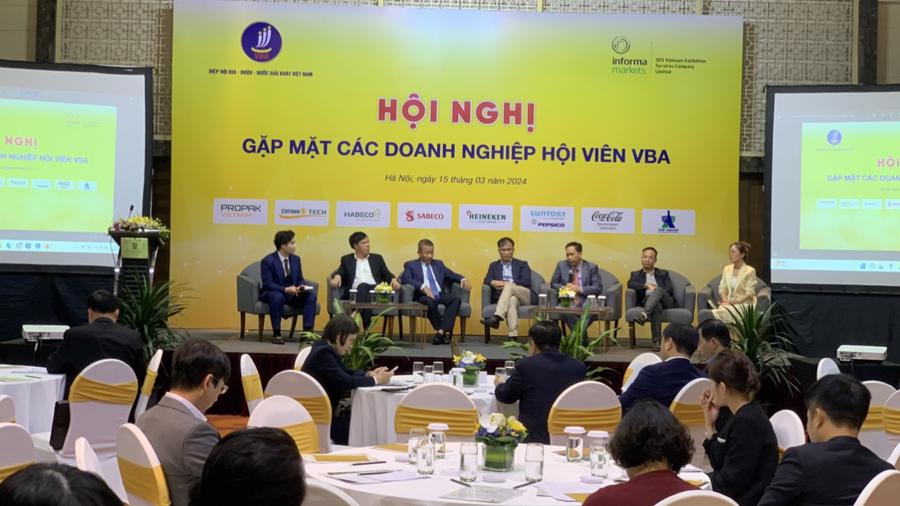
BE SCIENTIFIC WHEN CRITICIZING POLICIES
At the conference, economic experts shared the difficulties of the entire industry, especially the alcohol and beer businesses.
However, Assoc. Prof. Dr. Vu Sy Cuong, Deputy Head of the Department of Financial Policy Analysis at the Academy of Finance, stated that the draft amendment to the Special Consumption Tax Law had been proposed long ago, but under the impact of the Covid-19 pandemic, the Government postponed the amendment.
“The draft law on special consumption tax has been proposed for a long time, not just recently. It should have been done earlier, but due to Covid-19, it has been postponed until now. In fact, to enhance national competitiveness, the Government has reduced corporate income tax, export-import taxes… so it is necessary to consider increasing other taxes. Meanwhile, Vietnam’s special consumption tax rate is currently lower than that of other countries in the region, so an increase is normal,” said Assoc. Prof. Dr. Cuong.
Mr. Nguyen Minh Thao, Head of the Business Environment Research and Competitiveness Capacity Division at the Central Institute for Economic Management, informed that “By May 2024, the Government will propose adding the special consumption tax program to the plan; in October 2024, the Government will submit the first draft to the National Assembly. In May 2025, it will be approved, and according to the normal process, it will take effect from January 1, 2026”.
During this process, Mr. Thao recommended that businesses actively provide feedback and suggest policy changes using persuasive and scientifically-based arguments.
“Through our work with the Ministry of Finance, we have found that they have not provided scientific basis for the impact of policies on the development of the industry, workers, and supply chains. Therefore, when businesses provide feedback, they need to provide figures and identify which taxes or fees they deem to be high or unreasonable, and explain what level is appropriate and why”, Ms. Thao recommended.
Sharing the same viewpoint with Mr. Thao, Assoc. Prof. Dr. Vu Sy Cuong emphasized that the current state management agencies are very open in receiving policies rather than imposing them. The issue is that the parties with related interests must analyze the overall benefits through authentic data to persuade the drafting agencies and the National Assembly.
“We have had difficulty finding data on the alcohol and beer industry. In my opinion, every year, companies should compile and publicly disclose data on the industry to see how much production, revenue, supply chains, and economic impact there are, how many jobs are created, and how much is contributed to the budget… We must have sufficient information on the benefits of all relevant parties in order for the policy-making agencies to understand”, Assoc. Prof. Dr. Vu Sy Cuong said.
POLICIES AIMED AT SUSTAINABLE DEVELOPMENT
Mr. Cường added that the current special consumption tax contributes about 8% of the total state budget revenue each year but the beer, alcohol, and beverage sector is not the biggest contributor.
“The Government has not discussed the application of a mixed tax method for alcohol/beer yet, but sooner or later this tax method must be applied. In the development strategy, the Ministry of Finance has also emphasized the need to change the outdated tax calculation method to a modern one that aligns with international practices”, Assoc. Prof. Dr. Vu Sy Cuong said.
According to experts, the current difficulties faced by the entire industry are one factor that needs to be comprehensively and deeply understood in terms of contributing opinions to the amendment of a tax or law for the long-term development of the entire industry, the environment, society, prosperity, and sustainability.
As a beer business operating in Vietnam for over 30 years, generating over 200,000 jobs, and contributing about 1% of GDP for Vietnam, the representatives from Heniken stated that they do not have a short-term perspective when it comes to the special consumption tax.
“We look at the best international practices and aim to build the most meaningful aspects in the decades to come. The current tax policies do not provide incentives for businesses to invest in improving production technology to achieve high-quality products that meet high standards and ensure consumer health. Meanwhile, with the rapid development of the international market, regulations on health standards, safe living, green and sustainable environment… are emphasized by all countries around the world, including Vietnam”, said the representatives from Heniken Vietnam.
TS Nguyen Quoc Viet, Deputy Head of VEPR, also believes that the beer and alcohol businesses need to emphasize environmental, social, and sustainable governance factors (ESG).
“We also need to raise quality standards. Clearly, Vietnamese customers are becoming more demanding like foreign customers. Therefore, we need to raise the standards to be in line with the world, protecting the health of the Vietnamese people.
VBA should take the initiative to propose to the government to establish its own criteria for different product lines, gradually integrating small and artisanal alcohol producers into the supply chain.
By integrating artisanal alcohol producers into the supply chain, the state can collect taxes, businesses can manage quality, and illegal liquor can be better controlled”, recommended Mr. Viet.
Mr. Viet believes that by doing so, the Vietnamese beer and alcohol market can expand regionally to ASEAN and Asia.
In the long run, with the development and increased awareness of society, the beer and alcohol industry should be encouraged to continue introducing new, high-quality products, with low alcohol content and ideal for consumers.
According to Mr. Dau Anh Tuan, General Secretary of VCCI, in the latest draft, the Ministry of Finance has exempted beer with 0% alcohol content from the special consumption tax. This is a positive signal that shows the management agencies are very open to feedback from the market with the goal of balancing overall benefits.

